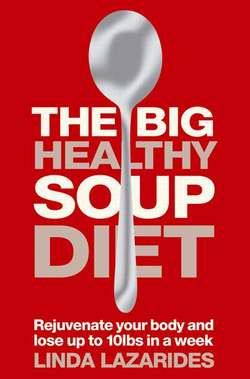Читать книгу The Big Healthy Soup Diet: Nourish Your Body and Lose up to 10lbs in a Week - Linda Lazarides - Страница 15
PECTIN-RICH FOODS
ОглавлениеApples
Apricots
Cabbage
Carrots
Citrus fruit
Peaches
Plums
Prunes
Several research studies have also shown that consuming a lot of pectin can lower your cholesterol levels. Pectin binds to bile acids (released by your liver into your intestines when fats and oils are consumed) and prevents you from reabsorbing them and turning them into cholesterol. Pectin also helps to keep bile flowing, and this is beneficial as it means your gall bladder (which stores bile) is regularly flushed out.
The success of the Cabbage Soup Diet may be partly due to the pectin content of cabbage. In this book you will find several soup recipes containing cabbage. These recipes help to make cabbage more interesting, and some of them use spices which enhance the weightloss potential of this vegetable.
Psyllium husks (see Resources, page 277) can also be added to soup, and are a good thickener for soups such as Chinese Hot and Sour Soup (see page 224). These seed husks are an ancient Ayurvedic treatment for cleansing the intestines, and are extremely rich in a type of soluble fibre known as mucilage. Mucilage is also found in seaweed, and many commercial vegetarian gelling products such as agar-agar consist of mucilage extracted from seaweed. (Adding mucilage to liquids thickens and gels them.) Psyllium husks can do a similar job and are cheap and easy to use. Owing to their huge capacity for absorbing water in the intestines, and so helping to bulk out the stools, psyllium husks are used as the basis of many anti-constipation remedies. One tablespoon a day whisked into a large glass of water encourages regular bowel motions without causing discomfort or diarrhoea. Combined with soup, psyllium husks will absorb and gel much of the liquid, so to your stomach they will feel more like solid food and will help you to stay full for longer.
